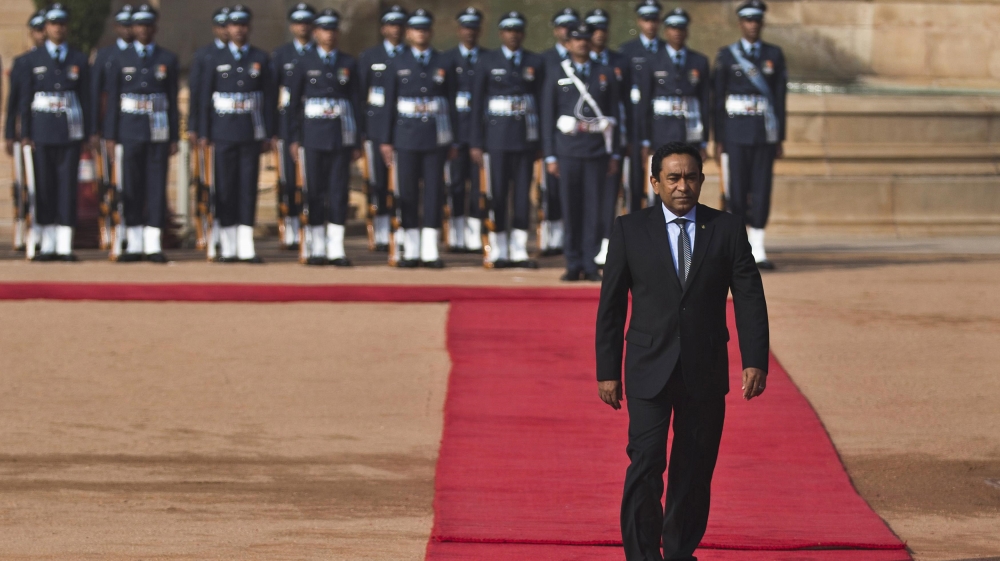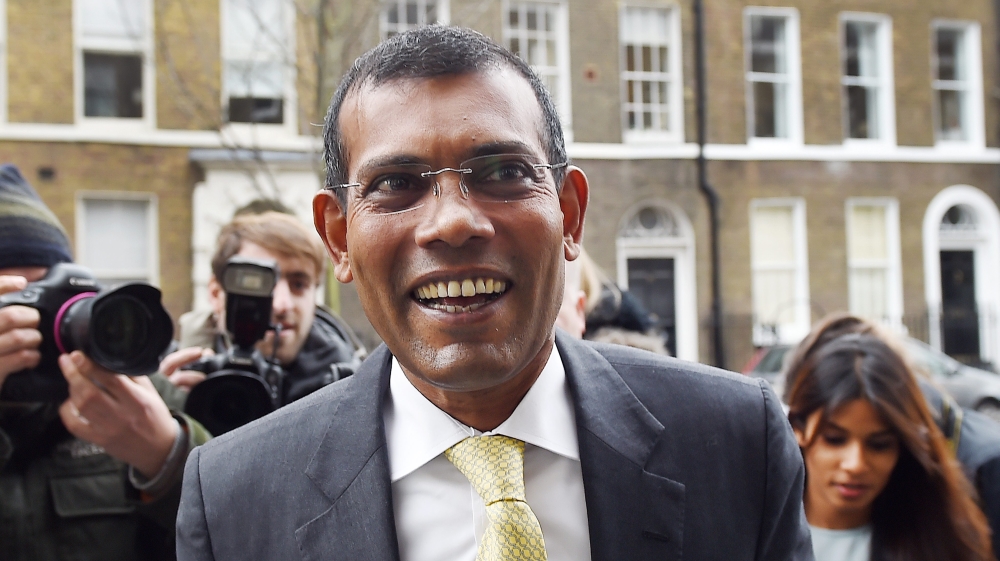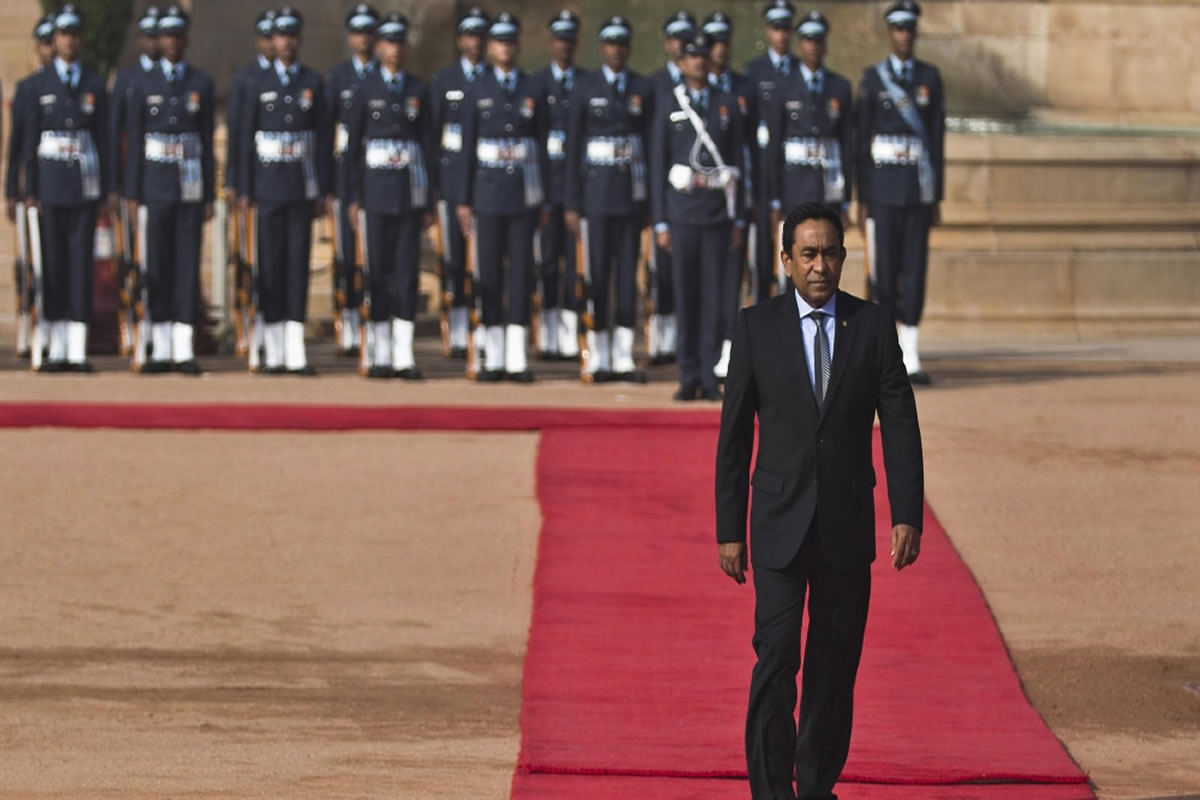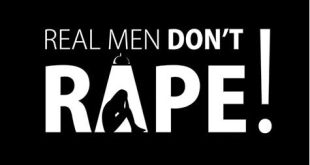Mohamed “Oittey” Hussain has a childlike sense of mischief as he tells the story of how former Maldives President Mohamed Nasheed’s 13-year terror sentence was decided.
“They called me and told me to pick up a letter from [Judge] Bari,” he says. “That was near Asr [the afternoon] prayer at 4:00. ‘Come near the court, the Justice Building, Criminal Court. There will be a narrow road’.”
His testimony is captured in a secretly filmed interview, which was obtained by Al Jazeera’s Investigative Unit.
“So I went there and he gave me something written, without an envelope. I just opened it.” He chuckles like a naughty teenager. “It was written Nasheed’s sentence.”
Oittey was a driver for Ahmed Adeeb, tourism minister at the time. Adeeb would soon rise to be vice president, only to fall and share Nasheed’s fate, prison on a terror sentence.
Adeeb took Nasheed’s sentence sheet from his driver, photographed it on his phone and sent the image to his boss.
“The president told [Adeeb] there is something [that] has to be changed in that written thing,” Oittey says. “That night, they sentenced Nasheed.”
Politically motivated sentences
“So it appears that your sentence of 13 years for terrorism was ordered directly by the president,” I say to Nasheed.
“Well it’s sad.” He sighs theatrically in order to emphasise an unsurprised disappointment. “I’ve been unlawfully and illegally held for so long and my family has been uprooted from my home. I have had to leave the Maldives.”
“All of these politically motivated sentences are being directed by President Yameen. I’ve been told the same but you have of course proven it beyond doubt.”
“The UN working group on arbitrary detention has found the charge was wrong, the trial was wrong, the sentence was wrong and I should be compensated. But the government of Maldives has decided not to act upon it.”
The Maldives government and the Supreme Court failed to respond to a request for comment at the time this article was written.
 Evidence suggests that Maldives President Abdulla Yameen personally determined the prison sentence of former president Mohamed Nasheed for ‘terrorism’ [Reuters]
Evidence suggests that Maldives President Abdulla Yameen personally determined the prison sentence of former president Mohamed Nasheed for ‘terrorism’ [Reuters]Green pin-up
Even though his party colours are yellow and his politics a conservative blue – “we are a centre-right party” – Mohamed Nasheed is a green hero. He is the closest thing the world’s environmentalists have to a pin-up.
So it was fitting that he hired famed barrister Amal Clooney to represent him. Maafushi Prison has never seen such star appeal as on September 8 last year, when Clooney strode in to see her client.
By January, she had completed her brief, and got him out of jail for free, or pro-bono in legal speak. The pair hugged at Heathrow Airport in front of a grateful band of paparazzi.
Nasheed had secured medical leave from prison and soon decided that he would not be returning to the Maldives within the 30 days stipulated under the terms of his release. He did not have the operation he ostensibly came for either.
Instead, he began a busy media tour, which included an office chair race in Hay-on-Wye and a round of TV interviews. By August, the UK government had granted him asylum, but he had already moved on to Sri Lanka, while reports came out that the opposition was plotting to overthrow the government.
 Former President of Maldives Mohamed Nasheed arrives for a press conference in London on January 25, 2016 [EPA]
Former President of Maldives Mohamed Nasheed arrives for a press conference in London on January 25, 2016 [EPA]A family affair
He may be adored abroad, but at home opinion about Mohamed Nasheed is distinctly mixed. Many love him. Many others hate him, and those people tend to be diehard supporters of the other primary political family – the Gayooms.
Nasheed’s 2008 election victory ended 30 years of one-man rule by Maumoon Abdul Gayoom, the half-brother of the current president. In the Maldives, politics is a family affair and Maumoon’s four children are all deeply involved in the political process.
The country has been caught in the middle of this filial tug-of-war, and the game is played on many different fields. One of the most significant is the judiciary.
“With the 2008 constitution, the people of the Maldives wanted three basic elements changed,” says Nasheed. “They wanted an independent elected executive, they wanted a legislature that was also independent, [and] they also wanted an independent judiciary capable, educated, and principled but we haven’t done that.”
Judicial campaigner Aishath Velezinee agrees: “The Maldives required the reconstitution of a completely new judiciary. So the Maldives was going to get not only the first ever democratically elected president, but also the first ever independent judiciary. That part never happened and I think that is the core problem.”
She blames Nasheed as much as anyone for failing to clean up the judiciary. The Island President soon learned the consequences of not doing so.
Arresting a judge
In January 2012, while still president, Nasheed ordered the arrest of the Chief Justice of the Criminal Court, complaining that he was blocking corruption cases. It triggered a political crisis that led to Nasheed’s resignation under duress in February.
“Well it was, of course, scary and difficult, and it was certainly in all practical purposes a coup. I was under threat. I was under pressure and I was forced to resign.”
Nasheed blames President Yameen for his overthrow: “He was leading it and he would have his own reasons for that.
“Yameen rang me while I was in the military headquarters and told me that I should go to [the presidential island] Aarah, or I should go to another island. You know he asked me that I should go, I should remain aloof and I should do all this. He did ring me.”
Nasheed believes “a very big contributing factor” in Yameen’s actions was the fact that Nasheed’s government was pressing ahead with a corruption case involving the Singapore branch of the Maldives State Trading Organisation (STO).
More than 2,000 pages of legal papers obtained by Al Jazeera show that forensic accountants estimate that at least $142m was embezzled from the Maldives state oil trader, STO. Yameen was chairman from 1990 until 2005 and continued to play a role after he stepped down. He was accused of being central to the fraud.
But the case never came to trial and a senior official says that days after the coup, the order was given to stop work on the case. Nasheed’s Singapore staff did not even have time to collect their papers.
Garage Meetings
Oittey’s stories of judicial mischief do not end with Nasheed’s sentencing. He is candid about the bribery of judges, such as Supreme Court Judge Abdulla Didi, who he says always had $20,000 sent “to his wife and kids in Malaysia”.
“So, every two months or three months, I have to give him 200,000 Rufiyaa ($13,000) sometimes. Other times, $20,000,” says Oittey. “Didi is one of the judges who sentenced Nasheed,” he adds for context.
Oittey says another Supreme Court judge, Ali Hameed, also received a flat that was put under his name in order to hide the judge’s identity. Phone data obtained by Al Jazeera has also shown that Judge Hameed regularly received money and used his political connections to secure jobs for his relatives.
Aside from the bribery, Oittey also explains how the president and vice president would regularly hold late-night conference calls with the senior judges to discuss ongoing cases. Vice President Adeeb and the judges would drive to a discreet garage, from where they would phone the president.
“Two cars can come inside, this is a very big garage,” says Oittey. “Adeeb will be in front and from Adeeb’s phone they will call the president.”
When asked why they meet in a garage, Oittey replies: “Because no one will think that there will be people inside the car. Otherwise, if there is an apartment, they could not come out.”
Male is an extremely cramped city, with more than 150,000 packed into 1.6 square kilometres. Discretion can be hard to secure.
Illegal judiciary
I ask Nasheed about the garage meetings. “I’m afraid the top layer of our judiciary is just absolutely so corrupt,” he says. “We must amputate it if we want a decent society.”
Velezinee goes further. She argues that the judiciary needs more than just an amputation. It needs to be put to rest and reborn. What exists today is illegal, she says.
“The judiciary was supposed to be reconstituted during the democratic transition. We failed to do it, so the judiciary is a breach of the constitution. With democratisation and the judiciary, nothing has changed. It’s still the same system. If you go to a judge for something, you give him a little something you have and he’ll give you a little something he has,” she adds. “It’s that kind of justice.”
She wants a full investigation into the initial failure to clean up the judiciary. Then she wants the lessons learned to be applied to its reconstruction. Without that, she says, the Maldives can have little hope of cleaning up its politics.
“When the judiciary is not right, there is no hope for democracy.”
 Gistfox Your News Window To The World.
Gistfox Your News Window To The World.





